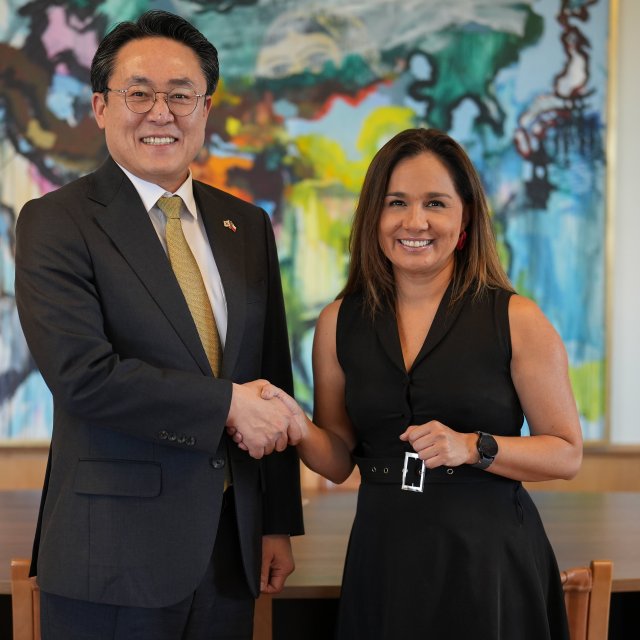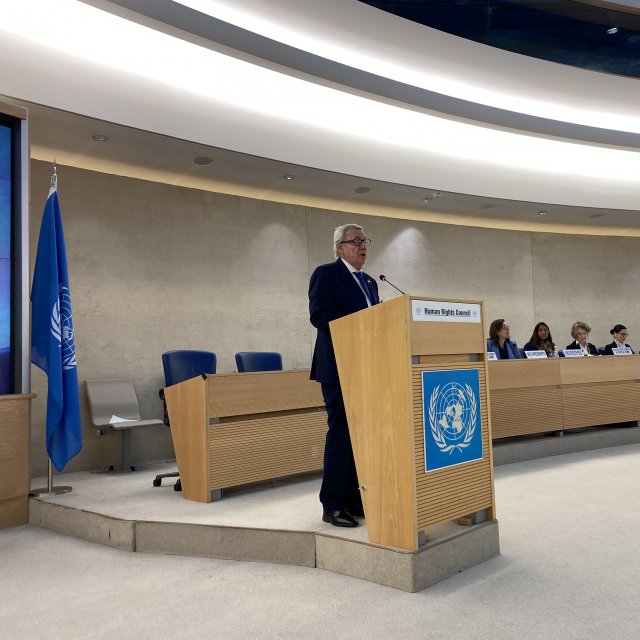 Thursday, February 27th 2025
Undersecretary meets with the Minister of Oceans and Fisheries of the Republic of Korea
Thursday, February 27th 2025
Undersecretary meets with the Minister of Oceans and Fisheries of the Republic of Korea
Chile signs historic first Memorandum of Understanding (MoU) on trade matters with Gulf countries

Within the tour through the Middle East in Saudi Arabia, the United Arab Emirates, Qatar, and Oman to deepen trade relations with Gulf countries and attract investment to Chile, today a historic first Memorandum of Understanding (MoU) was signed at the headquarters of the General Secretariat of the Cooperation Council of the Gulf (CCG) -in Riyadh- to formally begin to develop feasibility studies for a future Free Trade Agreement.
The MoU establishes a consultation mechanism on matters of common interest, as well as interest in interacting with the Pacific Alliance. In the signing ceremony, the General Secretary of the GCC, Nayef Falah M. Al-Hajraf participated, along with the Undersecretary of International Economic Relations (SUBREI), Rodrigo Yáñez, who pointed out that this is great news and goes in line with the Government's strategy for diversifying the export supply and destination markets.
"The signing of this MoU constitutes a very positive sign for the future deepening of trade with the Gulf countries in the medium term, which represents one of the main economic blocs worldwide," he said.
The Gulf Cooperation Council, created in 1981, is a customs union made up of Saudi Arabia, Oman, Kuwait, Bahrain, Qatar, and the United Arab Emirates. For the Gulf countries, signing an FTA with Chile would allow them to benefit from the extensive network of trade agreements that our country has with various regions, including Asia Pacific, Europe, and the United States, which provides these countries with important access to markets under preferential conditions, and also as a business platform.
Bilateral trade Gulf Cooperation Council
The commercial exchange between CCG and Chile has expanded at an annual rate of 3.6% during the period from 2003 to 2020. During 2020, bilateral trade reached $US 432 million, registering exports by $US 404.7 million and imports for $US 27 million.
The Chilean presence in the GCC market stands out mainly in the field of fruits and seafood, this is how it manages to position itself as the main supplier of dehydrated apples, frozen salmon, and mussels. Over the last 18 years, the presence of Chilean food in this market has multiplied by 3.6 times and has grown by an average of 8% per year.
Related articles
 Thursday, February 27th 2025
Undersecretary meets with the Minister of Oceans and Fisheries of the Republic of Korea
Thursday, February 27th 2025
Undersecretary meets with the Minister of Oceans and Fisheries of the Republic of Korea
 Monday, February 24th 2025
Minister van Klaveren reaffirms Chile's commitment to human rights and gender equality
Monday, February 24th 2025
Minister van Klaveren reaffirms Chile's commitment to human rights and gender equality









